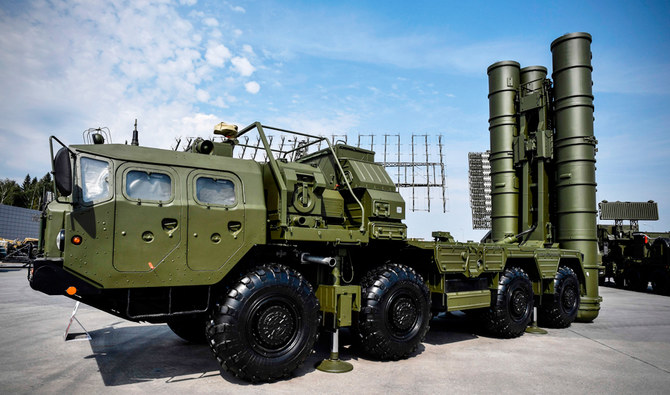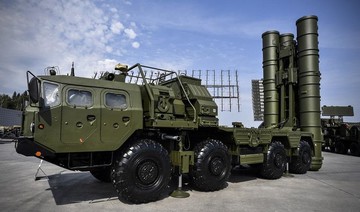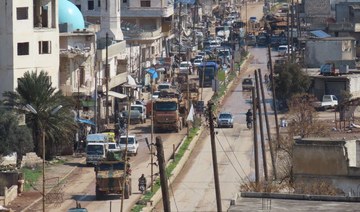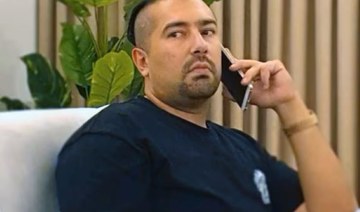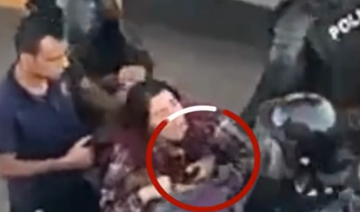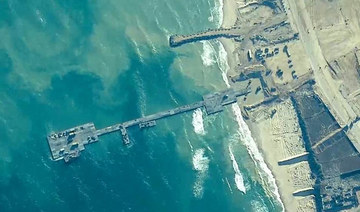ANKARA: Pressure was on Friday mounting on embattled Turkish President Recep Tayyip Erdogan over whether to activate his country’s Russian-made S-400 defense system and run the risk of triggering a round of tough US sanctions.
Despite Ankara and Washington’s main focus currently being on combating the coronavirus disease (COVID-19) pandemic, the thorny subject has remained a hot topic.
In a speech on Thursday, David Satterfield, the US ambassador to Turkey, made it clear that Turkey could face American penalties if it puts the controversial missile system into operation as planned.
“We made our position quite explicit to President Erdogan, to all the senior leadership of Turkey, and that is: The operational S-400 system is not compatible with Turkey’s participation in the acquisition of the F-25 (joint strike fighter) program and it exposes Turkey to a very significant possibility of Congressional sanctions, both those that involve the Countering America’s Adversaries Through Sanctions Act (CAATSA) legislation, and additional freestanding legislative sanctions,” he said during an online meeting hosted by the Atlantic Council.
CAATSA sanctions comprise bans on banking and foreign exchange transactions and the denial of export licenses, as well as partial freezing or confiscation of assets of individuals involved in the Russian deal.
The concerns of the US are not unfounded. During the same meeting, Turkish presidential spokesperson, Ibrahim Kalin, said the delay in the activation of the S-400 was related to the COVID-19 outbreak. “It will move forward as it was planned,” he added.
Soner Cagaptay, director of the Turkish Research Program at the Washington Institute, told Arab News that Erdogan was between a rock and a hard place in terms of choosing between the two different alliances.
He said: “(Russian President Vladimir) Putin won’t allow him not to turn the S-400 system on, knowing that when Ankara implements this step, it will rupture an eight-decade old Turkish relationship.
“Erdogan also needs a US financial lifeline and its support to turn Turkey’s economy around. Turkey’s continuing ties with global financial markets, with the EU in terms of foreign direct investment from the EU and with the US being as a financial anchor.
SPEEDREAD
Despite Ankara and Washington’s main focus currently being on combating the coronavirus disease (COVID-19) pandemic, the thorny subject has remained a hot topic.
“Erdogan is slowly realizing that Turkey, as a standalone actor or when it deals with Russia, is stronger when it has the US on his side. He most recently saw it in Idlib where the US supported Turkey both in the military and political realms inside and outside of NATO and helped provide deterrence to convince Putin to step aside,” Cagaptay added.
Turkey has been in contact with the US Federal Reserve (Fed) for a while to ensure a swap facility – whereby the Fed receives other currencies in exchange for dollars – and guarantee external funding from the US Central Bank to alleviate its ongoing financial challenges without signing a deal with the IMF (International Monetary Fund).
Cagaptay pointed out that the current poor state of the Turkish economy had resulted in Erdogan losing popularity among the electorate, as well as a number of key cities during the recent local elections.
“Erdogan needs to deliver economic recovery. COVID-19 is only compounding the economic crisis. Having positive signals from the US, whether it is with swap lines or having simply good ties, is a sine qua non (essential condition) for recovering and keeping the Turkish economy afloat,” he said.
Turkey recently dispatched medical aid, including personal protective equipment and disinfectants, to the US for helping its NATO ally in its COVID-19 fight.
The medical supply followed a letter sent by Erdogan to US President Donald Trump in which he extended his hopes that the “US Congress would better understand the strategic importance of their relations, given solidarity and supplies shared during the coronavirus pandemic.”
A move to impose sanctions on Turkey over its purchase of the S-400 weapons system from Russia has always been on the agenda of the US Congress but was suspended temporarily after the activation of the system was delayed as Ankara focused its attention on battling COVID-19.
“First the prolonged impeachment process at the US Congress, then the ongoing battle in Syria’s rebel-held Idlib province, followed by escalation of the coronavirus pandemic, and finally Turkey’s delaying of the activation of the S-400 systems have taken US sanctions to Turkey off the agenda,” Ozgur Unluhisarcikli, the Ankara office director of the German Marshall Fund of the US, told Arab News.
“However, the equilibrium has not changed and Turkey’s activation of the S-400s, when it happens, will likely lead to CAATSA sanctions by the administration or a separate sanctions package by Congress, or both,” he said.
Unluhisarcikli added that the deployment by the US of some Patriot surface-to-air missile batteries on Turkey’s border with Syria covering the Idlib airspace for a renewable period in return for Turkey pledging not to activate the S-400s in the same period, may be a reassurance for Turkey against Russia and Syria.



